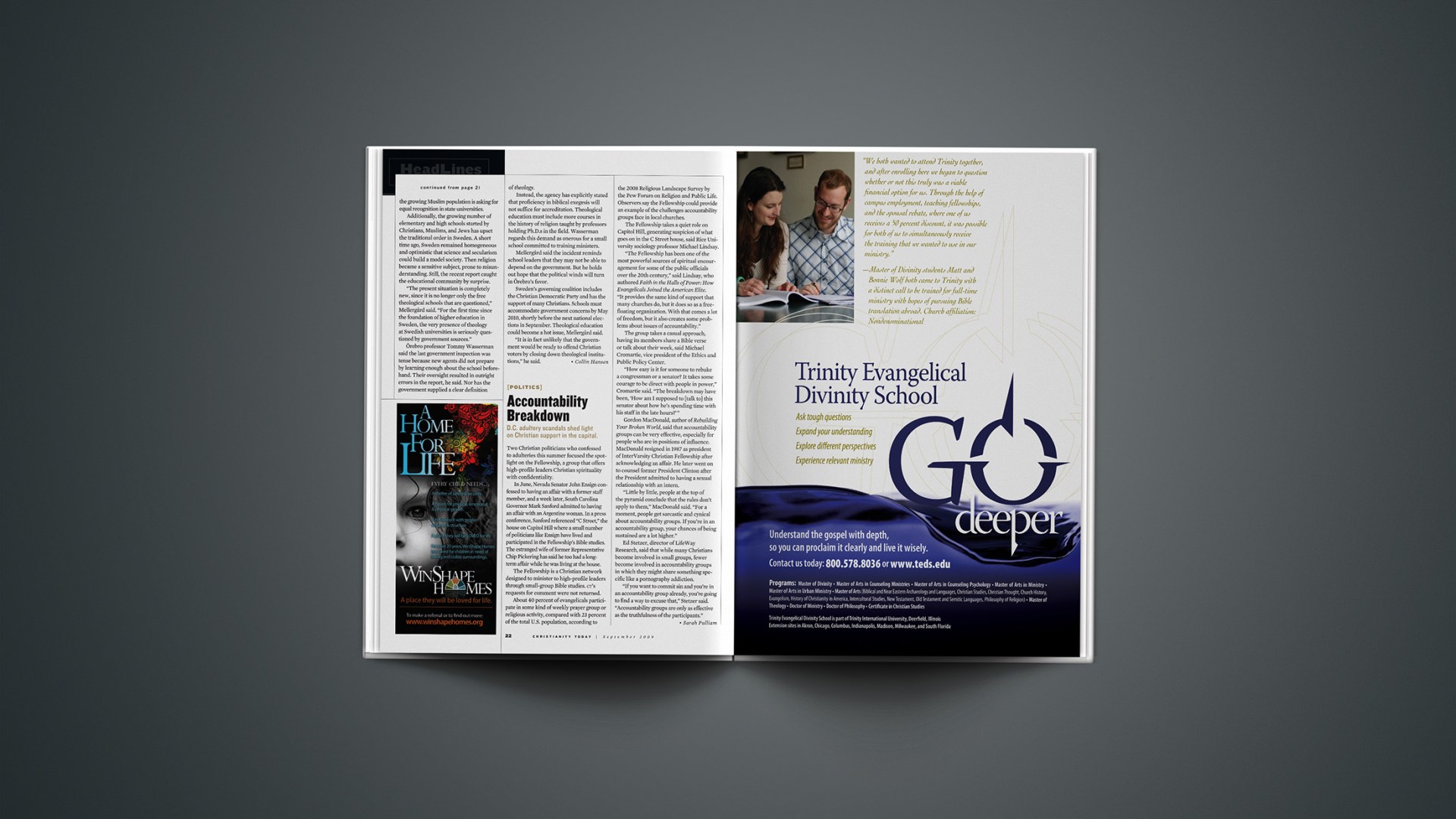Two Christian politicians who confessed to adulteries this summer focused the spotlight on the Fellowship, a group that offers high-profile leaders Christian spirituality with confidentiality.
In June, Nevada Senator John Ensign confessed to having an affair with a former staff member, and a week later, South Carolina Governor Mark Sanford admitted to having an affair with an Argentine woman. In a press conference, Sanford referenced “C Street,” the house on Capitol Hill where a small number of politicians like Ensign have lived and participated in the Fellowship’s Bible studies. The estranged wife of former Representative Chip Pickering has said he too had a long-term affair while he was living at the house.
The Fellowship is a Christian network designed to minister to high-profile leaders through small-group Bible studies. CT’s requests for comment were not returned.
About 40 percent of evangelicals participate in some kind of weekly prayer group or religious activity, compared with 23 percent of the total U.S. population, according to the 2008 Religious Landscape Survey by the Pew Forum on Religion and Public Life. Observers say the Fellowship could provide an example of the challenges accountability groups face in local churches.
The Fellowship takes a quiet role on Capitol Hill, generating suspicion of what goes on in the C Street house, said Rice University sociology professor Michael Lindsay.
“The Fellowship has been one of the most powerful sources of spiritual encouragement for some of the public officials over the 20th century,” said Lindsay, who authored Faith in the Halls of Power: How Evangelicals Joined the American Elite. “It provides the same kind of support that many churches do, but it does so as a free-floating organization. With that comes a lot of freedom, but it also creates some problems about issues of accountability.”
The group takes a casual approach, having its members share a Bible verse or talk about their week, said Michael Cromartie, vice president of the Ethics and Public Policy Center.
“How easy is it for someone to rebuke a congressman or a senator? It takes some courage to be direct with people in power,” Cromartie said. “The breakdown may have been, ‘How am I supposed to [talk to] this senator about how he’s spending time with his staff in the late hours?'”
Gordon MacDonald, author of Rebuilding Your Broken World, said that accountability groups can be very effective, especially for people who are in positions of influence. MacDonald resigned in 1987 as president of InterVarsity Christian Fellowship after acknowledging an affair. He later went on to counsel former President Clinton after the President admitted to having a sexual relationship with an intern.
“Little by little, people at the top of the pyramid conclude that the rules don’t apply to them,” MacDonald said. “For a moment, people get sarcastic and cynical about accountability groups. If you’re in an accountability group, your chances of being sustained are a lot higher.”
Ed Stetzer, director of LifeWay Research, said that while many Christians become involved in small groups, fewer become involved in accountability groups in which they might share something specific like a pornography addiction.
“If you want to commit sin and you’re in an accountability group already, you’re going to find a way to excuse that,” Stetzer said. “Accountability groups are only as effective as the truthfulness of the participants.”
Copyright © 2009 Christianity Today. Click for reprint information.
Related Elsewhere:
Christianity Today has covered the Sen. John Ensign and Gov. MarkSanfordstories at our politics blog.










